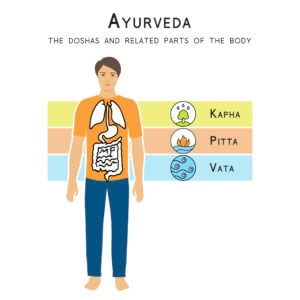Why You Have to Get It: The Transformative Power of Ayurveda Explained
Ayurveda, a classic system of medication, supplies an unique point of view on health and wellness that transcends mere symptom management. As we discover the core principles and practices of Ayurveda, it becomes evident that its transformative potential expands much beyond traditional health standards-- elevating the concern of how it could improve your understanding of wellness.
Comprehending Ayurveda's Core Concepts
Ayurveda, frequently called the "scientific research of life," is rooted in an alternative approach to health that links the physical, mental, and spiritual measurements of well-being. Central to Ayurveda are the principles of the 5 components, called "Pancha Mahabhuta," which make up earth, water, ether, fire, and air. These aspects incorporate to create 3 key energies, or "doshas": Vata, Pitta, and Kapha, each representing different mixes of physical and mental qualities.


Recognizing these doshas is crucial for determining an individual's unique constitution, or "Prakriti," which overviews personalized wellness approaches. Ayurveda stresses equilibrium, promoting for a way of living that integrates these powers via diet regimen, herbal solutions, and everyday regimens. Moreover, Ayurvedic principles insist that health and wellness is not merely the absence of illness yet a state of optimum vigor.
The method of mindfulness and self-awareness is essential, motivating individuals to create a much deeper connection with their bodies and the atmosphere. By identifying the interplay of physical and emotional elements, Ayurveda promotes a detailed understanding of health that equips people to organize their health, cultivating a course in the direction of all natural improvement.
Advantages of Ayurvedic Practices
Consistently including Ayurvedic practices into day-to-day live can generate a wide variety of benefits that enhance general wellness. These time-honored practices focus on attaining consistency within the mind, body, and spirit, bring about enhanced physical health and wellness, psychological quality, and emotional balance.
One significant benefit of Ayurvedic practices is their capacity to advertise digestive health. Customized dietary suggestions, based upon an individual's dosha, can maximize nutrition absorption and reduce stomach concerns. In addition, Ayurvedic herbs and flavors, such as turmeric and ginger, possess anti-inflammatory buildings that can aid in the avoidance and administration of persistent conditions.
Additionally, Ayurvedic methods highlight the importance of everyday regimens, known as dinacharya, which foster security and predictability in one's life. This uniformity can decrease stress levels and improve productivity. Mindfulness methods, including meditation and yoga exercise, not just cultivate mental durability but also improve emotional regulation.
Finally, by fostering a connection to nature and emphasizing holistic living, Ayurveda motivates individuals to participate in self-care and cultivate a feeling of area. In general, the integration of Ayurvedic practices can bring about a much more well balanced, vivid, and meeting life.
Secret Elements of Ayurvedic Healing
At the core of Ayurveda lie 3 primary components: the idea of doshas, the focus on equilibrium, and the all natural strategy to health and wellness. The doshas-- Vata, Pitta, and Kapha-- represent the unique mixes of the 5 elements that regulate specific constitutions.
Equilibrium is a persisting motif in Ayurvedic healing, reflecting the belief that health arises from consistency within the body and between the individual and their setting. Interruption of this equilibrium can lead to illness, demanding targeted interventions to bring back equilibrium.
Furthermore, Ayurveda accepts an all natural technique, considering physical, mental, and spiritual facets of health. This extensive viewpoint identifies that emotional wellness and way of life selections substantially influence physical health and wellness.
Incorporating Ayurveda Into Every Day Life
Incorporating the principles of Ayurveda into every day life can dramatically enhance overall wellness and promote a deeper connection to one's body and environment. By taking on Ayurvedic practices, people can grow equilibrium and consistency within themselves, adjusting to their distinct constitution or dosha.

Incorporating natural solutions and all-natural ingredients right into personal care routines can better strengthen Ayurvedic concepts. Utilizing oils for self-massage, understood as abhyanga, advertises circulation and leisure. In addition, including reflection or yoga exercise can improve mental quality and psychological security, fostering an all natural strategy to health.
Last but not least, recognizing environmental elements, such as climate and seasonal adjustments, allows individuals to adjust their way of livings appropriately, making certain that their techniques continue to be helpful and efficient - Ayurveda. By weaving these concepts right into everyday life, one can experience profound advantages, bring about an extra well balanced and meeting presence
Individual Makeovers Via Ayurveda
The application of Ayurvedic principles right into day-to-day regimens commonly brings about significant personal transformations, as published here people begin to experience extensive shifts in both physical and mental health and wellness. By accepting methods such as nutritional alterations, organic supplementation, and mindful reflection, several record increased energy levels, enhanced food digestion, and enhanced psychological strength.
People commonly find that the alternative method of Ayurveda addresses not simply signs, yet underlying inequalities within the mind and body. For instance, embracing a customized dietary regimen based on one's dosha can result in weight administration, reduced swelling, and better general vitality - Ayurveda. Additionally, the incorporation of everyday self-care rituals, such as oil pulling or Abhyanga (self-massage), cultivates a much deeper link to one's body, advertising self-awareness and supporting psychological well-being.
As specialists dig click to find out more much deeper into Ayurvedic approach, they frequently uncover a renewed feeling of purpose and quality in their lives. This transformative trip motivates individuals to grow mindfulness, resulting in healthier connections and a better recognition for today minute. Eventually, Ayurveda equips people to take fee of their health, helping with a lasting and meaningful change in their lives.
Verdict
The transformative power of Ayurveda depends on its alternative method, advertising harmony amongst body, spirit, and mind. By carrying out and acknowledging specific doshas customized practices, Ayurveda fosters optimal health and wellness and psychological durability. Its integration into every day life urges mindful living and much deeper connections within neighborhoods. Eventually, welcoming Ayurveda can bring about extensive individual changes, enhancing general wellness and facilitating a more unified and well balanced presence. The concepts of Ayurveda supply useful insights for cultivating a meeting and vivid life.
As we explore the core principles and methods of Ayurveda, it comes to be apparent that its transformative potential extends far past conventional health standards-- elevating the concern of how it may reshape your understanding of health.
Ayurveda, frequently defined as the "scientific research of life," is rooted in an alternative method to wellness that intertwines the physical, mental, and spiritual measurements of wellness. At the core of Ayurveda lie 3 main parts: the idea of doshas, the emphasis on balance, and the alternative technique to wellness. Ultimately, Ayurveda encourages individuals to take charge of their health, facilitating a purposeful and long lasting improvement in their lives.
By identifying private doshas and applying customized practices, Ayurveda promotes optimal wellness and emotional resilience.